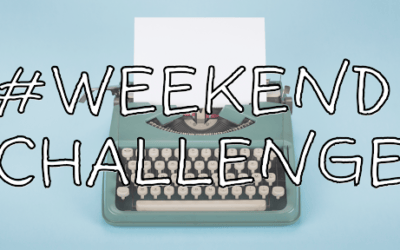
Why your story should always have a Hook
In this blog we’re going to cover two elements of “the hook.” We’re going to cover why you should begin your story with a hook — a gripping moment, the inciting incident — and also why, when you’re beginning to form the basis of a new story, you should think long and hard about its hook before you do anything else.
What is a hook?
Imagine a big ole fishing hook, heading towards your reader, digging in, and tugging. Once they’re on the hook, they’re not getting off. They’re hooked. We’ve all felt it. When you begin a new book and it instantly grips you, you know you’re at the start of a fantastic journey.
A hook is a literary technique to start your story off with a bang and keep your reader’s attention.
It’s so important that your story starts at the right point. Attention span is precious. Now we have Netflix, YouTube, social media, Podcasts, and a hundred other things our reader might be doing instead of reading. If we don’t treat their attention span with respect, they’ll never get hooked on your story.
So where should your story start?
A typical story arc goes as follows: life is normal for your protagonist, and then SOMETHING happens. This something — the inciting incident — is what turns your protagonist’s life upside down and sets them on their journey.
Think of your favourite films, the first episode of your favourite TV show, and of course, the opening few pages of your favourite books.
In a crime novel, the hook is usually the introduction of the first victim. In a romance novel, you’re going to want to have your characters meet as soon as humanly possible! In a horror novel, it’s likely going to be the first encounter with the Big Bad.
The quicker we can get to this point, the better. In fact some stories begin here in the very first line. Throwing your reader into the action can be a brilliant way to keep them hooked.
What happens if you don’t start with a hook?
If you don’t hook your reader immediately, they’ll never read on!
If you don’t give your reader any reason to invest in your story, they’re going to put your story down. This goes ten-fold for a younger audience. They have a million-and-one things vying for their attention. It is only fair to your reader that you set the stage as quickly as possible for them so they know exactly what they’re in for.
There is a fine line between being impactful and rushing though. You’ll find the sweet spot with practice and by studying books that you love personally.
Backstory can wait.
It can be so tempting to heap in the backstory of your character right up front. But DON’T DO THIS! No one will care if your protagonist lives with his uncle and loves karate and baseball if they don’t have a reason to be invested yet.
The very best stories keep you waiting for backstory as long as possible. If a question doesn’t immediately need to be answered, then leave it dangling! This is a fantastic way to tempt your reader to continue.
At the beginning of your story, your job is to thrust your reader into the action as quickly as possible without weighing them down. They need only just enough information to get going and be invested. Everything else can wait.
Read Next: Children’s books for Refugee Day

So what is a “hook” when it comes to selling your story?
The other part of the hook is this: one day you might need to pitch your story in two sentences or less. A hook is your elevator pitch, and if you’re looking at traditionally publishing your work one day, you’ll need to keep this in mind. You want a snappy and enticing answer to “so what is your story about?”
If that question fills you with dread? If you mumble along with lots of “um,” “ahh,” and “uhhh”, then your story isn’t as concise as it needs to be.
Sometimes, if you get to the end of your own story and you haven’t thought about the hook, it can be a LOT harder to reverse-engineer a hook back into it. A great test to see if an idea is worth pursuing is to see if it has a hook. Can you describe your story in two sentences or less? Does it sound interesting? Well, if so, you might just be onto a great idea!
A Hook Example
The Martian by Andy Wier
An astronaut gets stranded on Mars alone and has to figure out a way to get back to Earth alive.
The pitch — or the hook — doesn’t have to tell the reader the entire story, it just has to give them enough enticing information to make them interested in learning more.
This hook could be used to entice a literary agent, and eventually an editor at a publishing house. A similar hook could be on the back of the book in a book store. For a story to be traditionally published, you need a hook. This is how stories are marketed.
A great test
If you’re struggling to figure out the hook to one of your existing stories, it’s probably an indication that the plot is too complex, or the story is too busy. If you begin your next story with a hook, not only will the path through your story be much clearer, but it will likely be a stronger story structure as well.
The best plots are simple and easy to understand. If you study the plot of your favourite film or book you’ll see that the narrative is usually quite clear and concise.
Conclusion
Condensing our ideas down into a hook is hard hard work. Many a writer has been driven crazy by the dreaded hook! But if you take it seriously and really work hard to give your story a simple, enticing hook, then not only will you be able to answer “so what is your story about?” with more confidence, you’ll be a much stronger writer for it.
If you enjoyed this blog, check out Active vs Passive voice and hone your writing skills!
Read our Latest Articles for Writers
The Writer’s Guide to Social Media
Today we are talking about a topic that intimidates many writers and illustrators, social media. Good news! It doesn’t have to. The key is to choose the platform that is most enjoyable to you. The one you don’t mind spending time on and fosters authentic...
How to Win a #WeekendChallenge
Thank goodness it’s Friday, WA Community, and not just because it’s the start of the weekend. Friday’s have us happy dancing because that’s when we announce the new #WeekendChallenge prompt. The #WeekendChallenge is an opportunity to write a 100-word entry based on a...
Submitting Your Story: 7 Tips to Survive the Query Trenches
You’ve typed “the end”, received feedback, and revised your story. Congratulations, you are ready to enter the Query trenches! Whether you decide to query an agent or an editor is a personal preference but these seven survival tips will apply to both query routes....
Subscribe to our mailing list
Be the first to find our about our newest blogs, offers and news from Write Academy!





